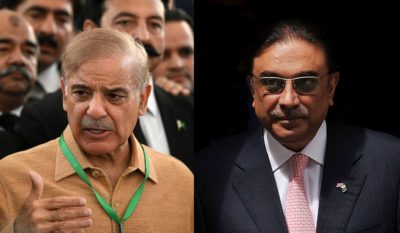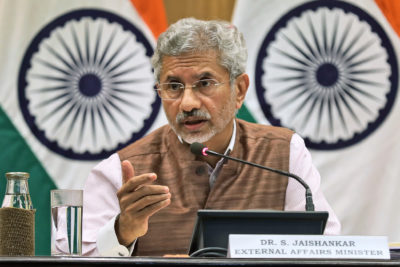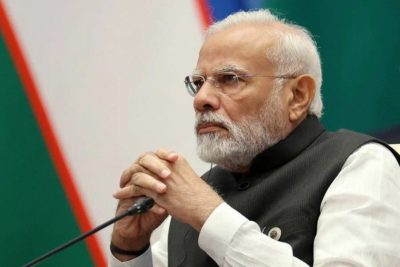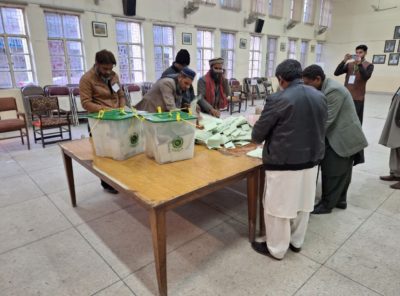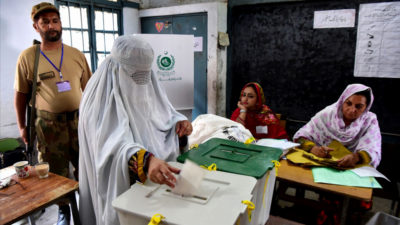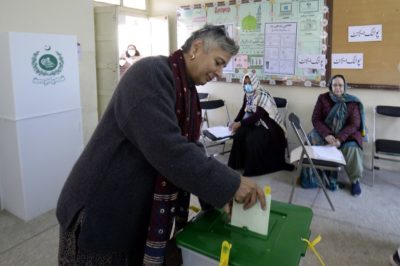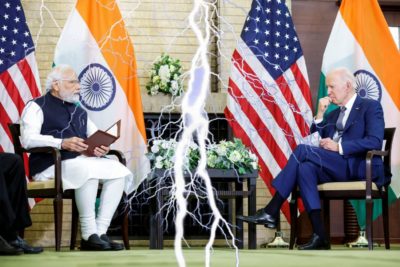Pakistan has formed a government and elected a President
The results of the general elections held on 8 February for the lower house of the central parliament (“National Assembly”) and the assemblies of the country’s four major administrative units – Balochistan, Khyber Pakhtunkhwa, Punjab and Sindh – have been officially announced in Pakistan. As none of the political organisations that contested the elections won a convincing majority in the new central parliament, a ruling coalition has been formed between two parties…
On New Delhi's foreign policy in the context of Indian Foreign Minister's visits to South Korea and Japan
The Indian leadership’s foreign policy has traditionally been characterised by a multi-vector and independent foreign policy, intolerance of any external pressure or imposition of foreign recommendations and advice. New Delhi can afford such an independent foreign policy, given India’s status as a major Asian power, its claim to a certain global role and its self-confidence as the world’s third largest economy. And no major power would dare dictate its terms to India, knowing that such an action would inevitably be met with rejection…
Towards India-Russia Relations in the Context of the Munich Commemorative Security Conference
Germany recently hosted the 60th International Conference on Security and the World Situation. This largest international forum brought together more than 40 heads of state and government, some 90 ministers, mainly of defence and foreign affairs, prominent political scientists, experts and media representatives. For the third year in a row, official Russian representatives were absent from the conference, although Russian Presidents Vladimir Putin and Dmitry Medvedev and Foreign Minister Sergei Lavrov once attended the forum…
India: Narendra Modi visits UAE and Qatar; farmers revolt again
On 13-15 February this year, Indian Prime Minister Narendra Modi travelled to the Middle East on the formal occasion of attending the regular “World Government Summit”, which is one of the many international forum platforms that have emerged in recent years. Launched in 2015 at the initiative of the leadership of the United Arab Emirates, the World Government Summit is held annually with a different composition of participants in the capital Abu Dhabi. After addressing the forum and holding a number of meetings “on occasion”…
Pakistan: vote passed, what next?
Voting in Pakistan’s much-anticipated general election on 8 February began at 8 a.m., but in the meantime, mobile networks were shut down across the country for more than 26 hours. Pakistanis are not used to network blackouts. There is often no connectivity during bank holidays parades, Muslim Eid and Ashura, protests criticising the ruling establishment and political rallies. Last year alone, mobile networks were down for four days after protests erupted when former Prime Minister Imran Khan was arrested outside the Islamabad High Court despite…
The Political Dynasties of South Asia
South Asia’s political stage is perhaps one of the most interesting in the world, characterised by struggling democracies, a heavy and unstable mix of religion and politics, and the presence of political dynasties. As Nawaz Sharif returns to Pakistan after years of exile in the United Kingdom amidst controversy after controversy, it is perhaps worthwhile to take a look at the different political dynasties in South Asia and their dynamics in their countries…
Some results of the general elections in Pakistan
So, contrary to the scepticism of some Pakistani experts, shared by the author of this article, general elections to the lower house of the central parliament (the “National Assembly”) as well as to four provincial parliaments were held in this country. Moreover, on 8 February this year, the date “finally fixed” (after a number of postponements). It should be noted that this scepticism was also based on the fact of initiating…
Pakistan into a Post-Election Crisis
General elections were conducted in Pakistan on February 8, 2024. People and analysts around the world were seeing the elections with skepticism due to the alleged role of non-democratic forces in these elections. Leaders of Pakistan Tehreek e Insaf (PTI) were incarcerated before the elections due to the charges of vandalism that the party workers committed on 9th May 2023. This resulted in shifting the tilt of the country’s establishment in favor of Pakistan Muslim League Nawaz (PML-N)…
Towards the release of India's Foreign Policy Review 2023; the context of the upcoming elections
On 5 February this year, India published an interesting document entitled “Foreign Policy Review 2023“, prepared by a group of specialists from one of the country’s leading “smart tanks”, the Observer Research Foundation (ORF). Established in the early 90s of the last century mainly for the purpose of solving problems in the sphere of economy (essentially arising at that time due to the loss of the main external partner in the person of the USSR), ORF gradually expanded…
India-US. The price of American friendship
On 26 January, the people of India celebrated the main bank holidays, Republic Day, which commemorates the adoption of the Constitution and the country’s transition from being a British colony to a sovereign democratic state. It is a very important holiday for the people of India – a day off when schools, institutes, government organisations and most businesses are closed. In New Delhi and state capitals there are festive processions and grand military parades with the participation of all branches of the armed forces. On the main avenue of the Indian capital, where the main parade took place…
Why the Democratic System Struggles in Pakistan
Since the country’s inception, democracy in Pakistan has been facing numerous obstacles. The main reason behind the failure of the democratic system is the political ambitions of the country’s leading political elite. Ironically, none of the incumbent top political leaders of Pakistan hold a purely democratic history. The leaders of the top three political parties have been conspiring with the non-democratic forces in the country to gain power. The forefathers of the country chose democracy as the best suitable form of government for Pakistan, given its ethnic and religious diversity…
Significant events in the run-up to India’s general elections
In April-May this year, India, now one of the world’s leading powers, will hold general elections to choose the members of its lower house of parliament and, consequently, to elect a new government. We should add the word “formally” here, because all the procedures prescribed by the existing constitution will need be complied with.For, as previously noted in NEO, there is now little doubt that the National Democratic Alliance, the center-right coalition that has ruled since 2014, will win yet another victory (the third in a row, albeit with varying margins). The NDA comprises more than forty parties and movements, but it is dominated by the Bharatiya Janata Party…
